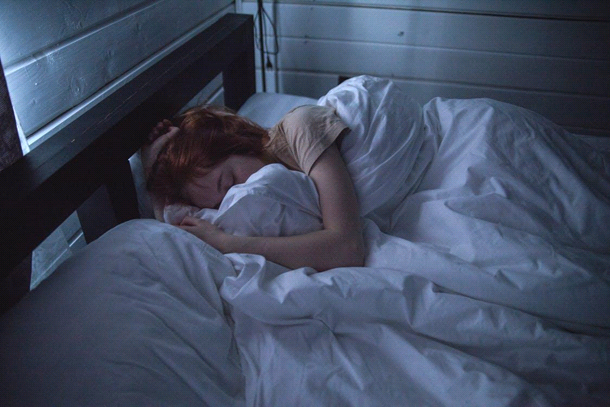The Ambien Defense: Does Ambien make people tweet bad things?
Twitter offers celebrities a convenient way to communicate with their fans—and an opportunity to go on ill-considered and potentially career-ending tirades. On Tuesday, Roseanne Barr became the latest of many to go down this path.
She has been a controversial figure throughout her successful career. She has been active on social media and is well known for her controversial views and statements. Early Tuesday morning she posted an outrageous tweet that attacked a former official in the Obama administration, Valerie Jarrett. While based on her past behavior, such a tweet was not tremendously surprising, it was in extraordinarily bad taste and was undeniably racist in content. And for good measure, she added George Soros, Chelsea Clinton, and others to the list of those attacked.
Her recent return to television had a very successful premiere and although the ratings dipped after that, her show had been renewed for a second season. Her ill-considered tweeting changed that. The same day that she posted the tweet, ABC Entertainment, backed by owner Disney, condemned the statements and canceled the renewal of the show. This may have been a strong stand for decency in a remarkably indecent time in our public discourse, or it may just have been good business, given the potential reactions of outraged advertisers and the boycotts that can be organized by online activists. It was ABC’s highest rated show.
In the aftermath of the cancellation, Barr deleted the tweet, then tried to explain it away, apologized for the remarks, and even said she was quitting Twitter. But the damage was done. I will leave to my psychoanalytic colleagues the heavy lifting of explaining why successful and well-known people self-destruct in these spectacular ways. Unfortunately, for the members of her cast, many of whom condemned the comments, her loss is also their loss—of an important professional opportunity and a well-paying job.
So I was struck by this morning’s headlines as she took the “Ambien defense.” After all the blaming and apologizing and ranting over the previous several days, she was now claiming that her ill-considered tweets resulted from her use of Ambien, a popular sleeping medication. She noted that she was tweeting at 2 a.m. and using Ambien when she posted the tweet. How credible are her claims?
For one thing, I highly recommend not putting one’s thinking at 2:00 a.m. out for public consumption. This is near the time of the body temperature nadir and typically brain and cognitive functioning are far from their highest levels. Secondly, I would highly recommend being in bed and trying to sleep, and not engaging in a form of “social” activity, like posting, if one has recently taken a powerful sleep aid.
Over the past decade, I have worked with a number of patients who could probably sympathize with Barr’s situation. I have, not infrequently, encountered people who have engaged in sleepwalking, sleep driving, and even criminal activity while under the influence of Ambien. I’ve heard sometimes amusing but more often frightening stories of people who have done things they don’t remember, such as making a purchase and driving to the store to pick it up. My guess is that the sales clerks either were unaware of any problem or may have assumed the person was mildly intoxicated.
Another serious situation I have encountered is that of people making ill-advised calls or sending texts after taking Ambien. They do not remember doing this and would not have done so under normal circumstances. These situations are magnified and worsened if the individual is sleep deprived and/or using other drugs, including alcohol. These situations can lead to permanent damage to family relationships, possible referral to an employee assistance program, or even termination of a job.
Ambien is the one of the most commonly used sleeping aids in the U.S. It has been a best seller since its introduction to the American market in 1992. It tends to take effect rapidly, and if it’s not taken shortly before getting into bed, there is increased potential for a person becoming impaired and acting in unusual ways. This is not to say that people cannot subsequently get out of bed and start sleepwalking or sleep eating, but in my experience, problems are more likely to occur when Ambien is taken and the person doesn’t go immediately to bed. It is probably a good idea to take it at one’s bedside.
This medication acts on the same receptor (though at a slightly different site) as benzodiazepine medications such as Valium and Xanax. It seems to have a more pronounced ability to cause sleepwalking and blackouts than other sleeping medications. During sleepwalking the person is both asleep and awake at the same time and is engaging in motor activities that are not well controlled by the higher cognitive processes. There can also be an amnesic effect which leads to a blackout so that the person later has no recollection of the behavior.
The first time I recall that Ambien made national news for sleep driving and was used as a defense was the report in 2006 that Representative Patrick J. Kennedy of Rhode Island had a motor vehicle accident in Washington, DC. He was thought to be intoxicated on alcohol but claimed the car crash was due to Ambien. He went for substance abuse treatment. More recently another member of the Kennedy family, Kerry Kennedy, claimed in court that she had a car crash due to the effects of Ambien on her driving.
In my practice, I do not typically see patients that intentionally abuse Ambien for its psychoactive effects, but this kind of use does occur. The sad events surrounding Tiger Woods in 2009 are a very public example of this. The lurid headlines indicated that he was using it for sexual activity.
Of course, just getting too little sleep can have an effect on decision making. I could cite many examples, but I think one of the most outstanding is that of Bill Clinton. Clinton had convinced himself that he could get by on very little sleep and was quoted as saying “Every important mistake I’ve made in my life, I’ve made because I was too tired.” It seems likely that at least some of his scandals could have been avoided with more sleep and better judgment.
Though it’s impossible to say for sure, the combination of being up late at night and engaging in sleep-incompatible behavior (like tweeting), exacerbated by taking a sleep aid and not getting into bed, might be a perfect storm for making significant mistakes.
Some writers have pointed out that ABC could have expected trouble with Barr given her controversial opinions and past behavior—which, as we know, is the best predictor of future behavior. We also cannot ignore the underlying cultural and political factors involved. There really may be no excuse for bad behavior under the influence of substances, including Ambien. Nevertheless, I think it wise to get enough sleep, avoid tweeting at 2:00 a.m., and if you use sleeping medication, use it wisely.
 About the author
About the author





